For Providers | Overview
When our young adult patients turn 18, there are a number of legal aspects of managing their care to consider. They are now responsible for making their own care decisions. In many cases, young adult patients may still include their parent or caregiver in their care. If the patient chooses to continue to involve their parent or caregiver, the patient must sign a release of information.
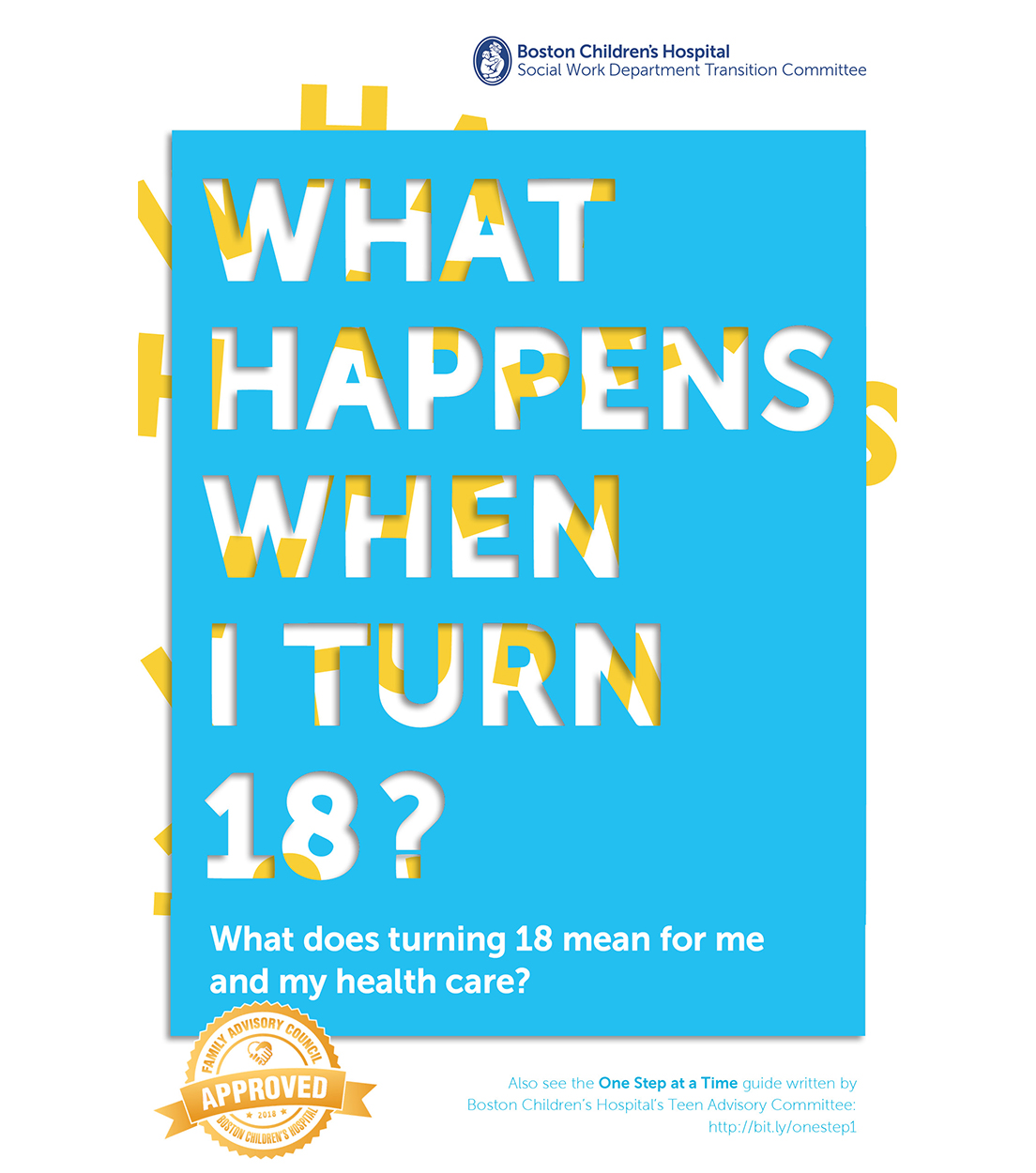
What happens when I turn 18?
What Happens When I Turn 18? gives young adults information that they need about their responsibilities as legal adults. Learn about consenting, privacy/sharing information, assigning a health care proxy and more.
For patients who have an intellectual disability and cannot make complex decisions on their own, a legal guardian may be appropriate. It is important to speak about this well in advance of the patient’s 18th birthday.
If patients require legal guardians and this hasn’t been addressed through the court, then this could impact your ability to get informed consent and may delay care. There are many situations like this that might require further assessing. This process is handled through the court system.
If for instance, the patient needs emergency surgery, you may consider contacting your legal department or consultant. They can help determine what the provider needs to obtain or document from a medical-legal perspective to move forward with the surgery urgently or semi-urgently. If the surgery can wait, then you need to speak with your patient’s caregiver about pursuing guardianship. The guardianship process is done through the local probate court system. Please refer to our Guardianship Booklet for more information.

Guardianship
What happens when my child turns 18?
Our guardianship booklets have information about what guardianship is and how to get it, including some state specific information and resources for families coming from the states where Boston Children’s Hospital patients generally come from.
Transferring care
It is important that your young adult patients have identified adult providers who will be able to manage their care as they leave the pediatric setting. You can be helpful by having knowledge of local providers who may be accepting new patients and by sharing this knowledge with your patients.
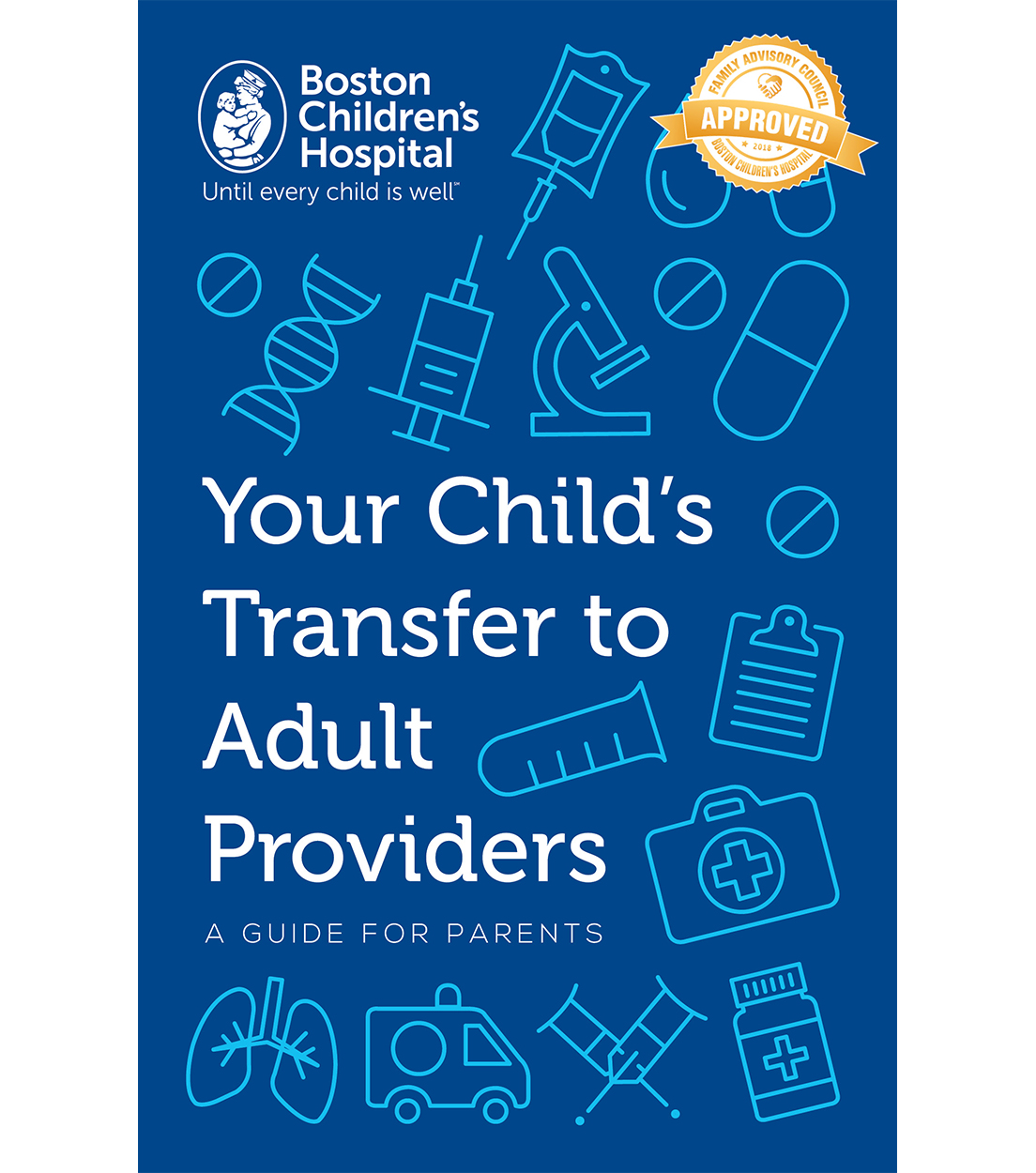
Your Child's Transfer to Adult Providers
A guide for parents
Your Child’s Transfer to Adult Providers: A Guide for Parents provides guidance to parents/caregivers as they help young adults navigating the transfer from pediatric to adult care providers.
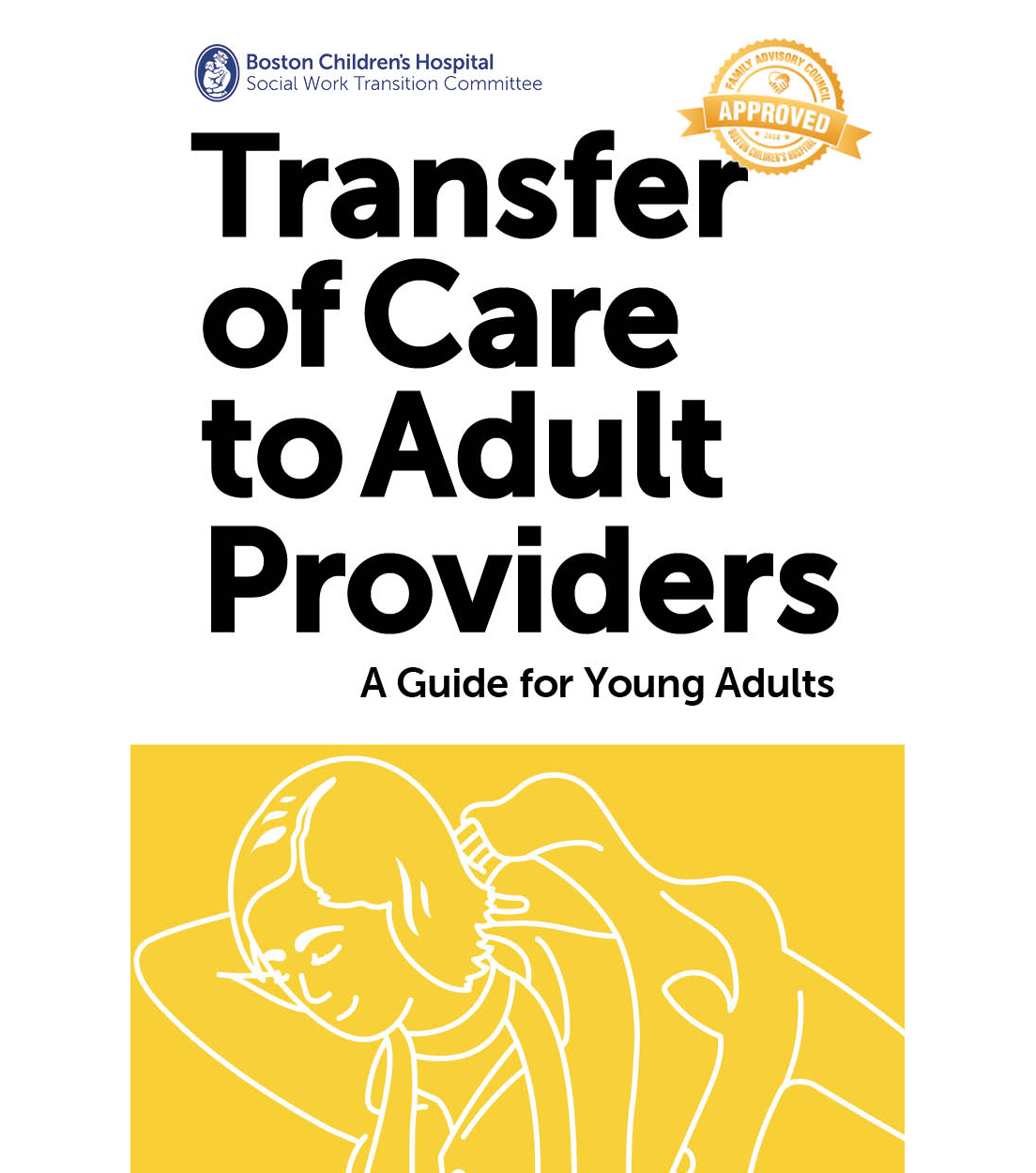
Transfer of Care to Adult Providers
A guide for young adults
Transfer of Care to Adult Providers: A Guide for Young Adults provides guidance to patients as they navigate the transfer from pediatric to adult care providers.
The transition to adult care can be a difficult topic for both patients and providers to discuss. The transition marks the end of a relationship. To best prepare your patients, it is a good idea to begin talking about transition early. This way, you and other members of the patient’s care team can identify resources that will be helpful.
It is important to ensure that patients have age-appropriate quality care and this generally means transferring to adult providers, including primary care. You should speak with your patient about this to develop a mutually agreeable timeline.
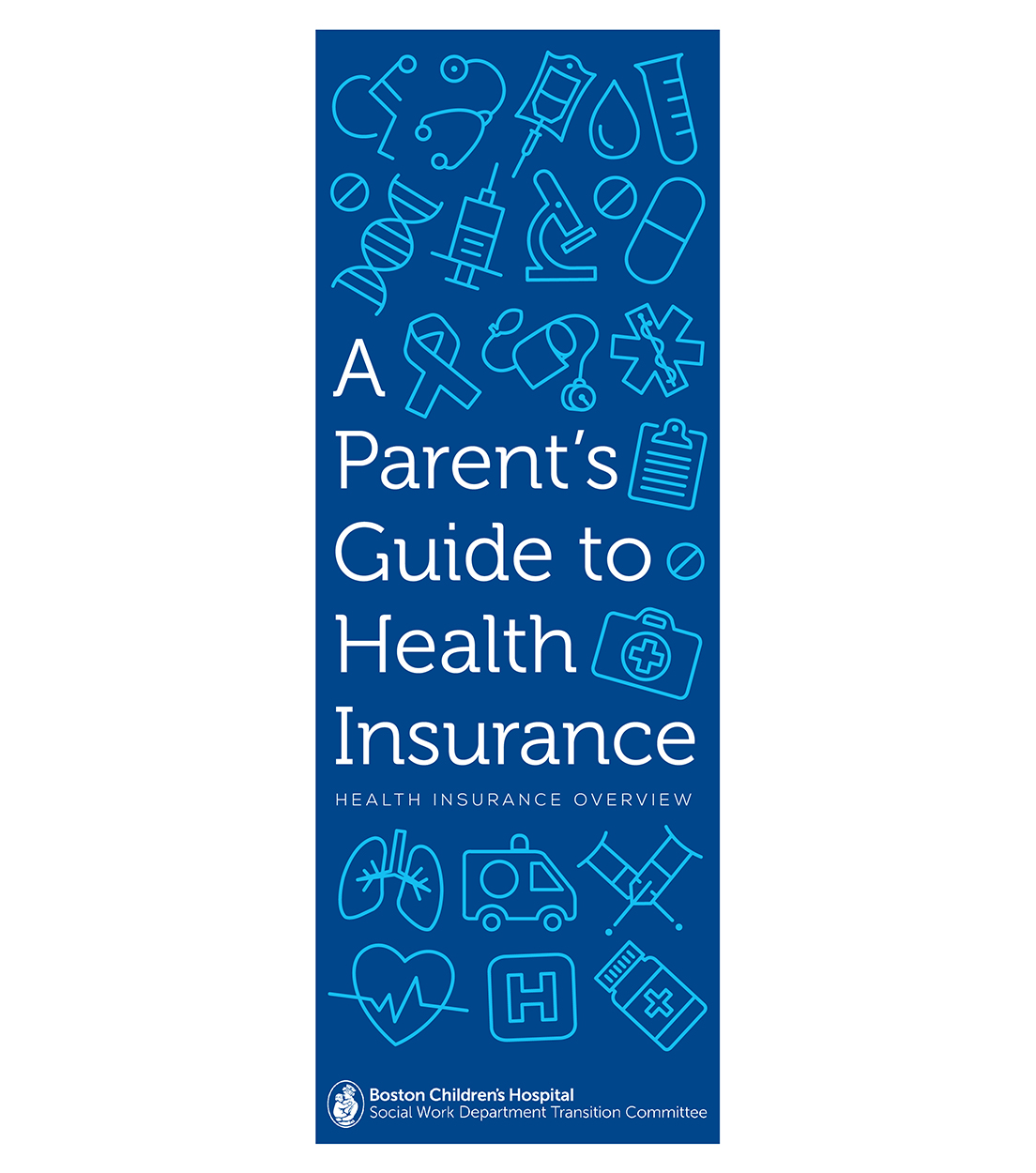
A Parent's Guide to Health Insurance
Health Insurance Overview
A Parent’s Guide to Health Insurance is an overview of things to consider in guiding children through health insurance as they reach adulthood or, if they will not be able to navigate on their own due to disabilities, gives guidance on what to consider on their behalf.
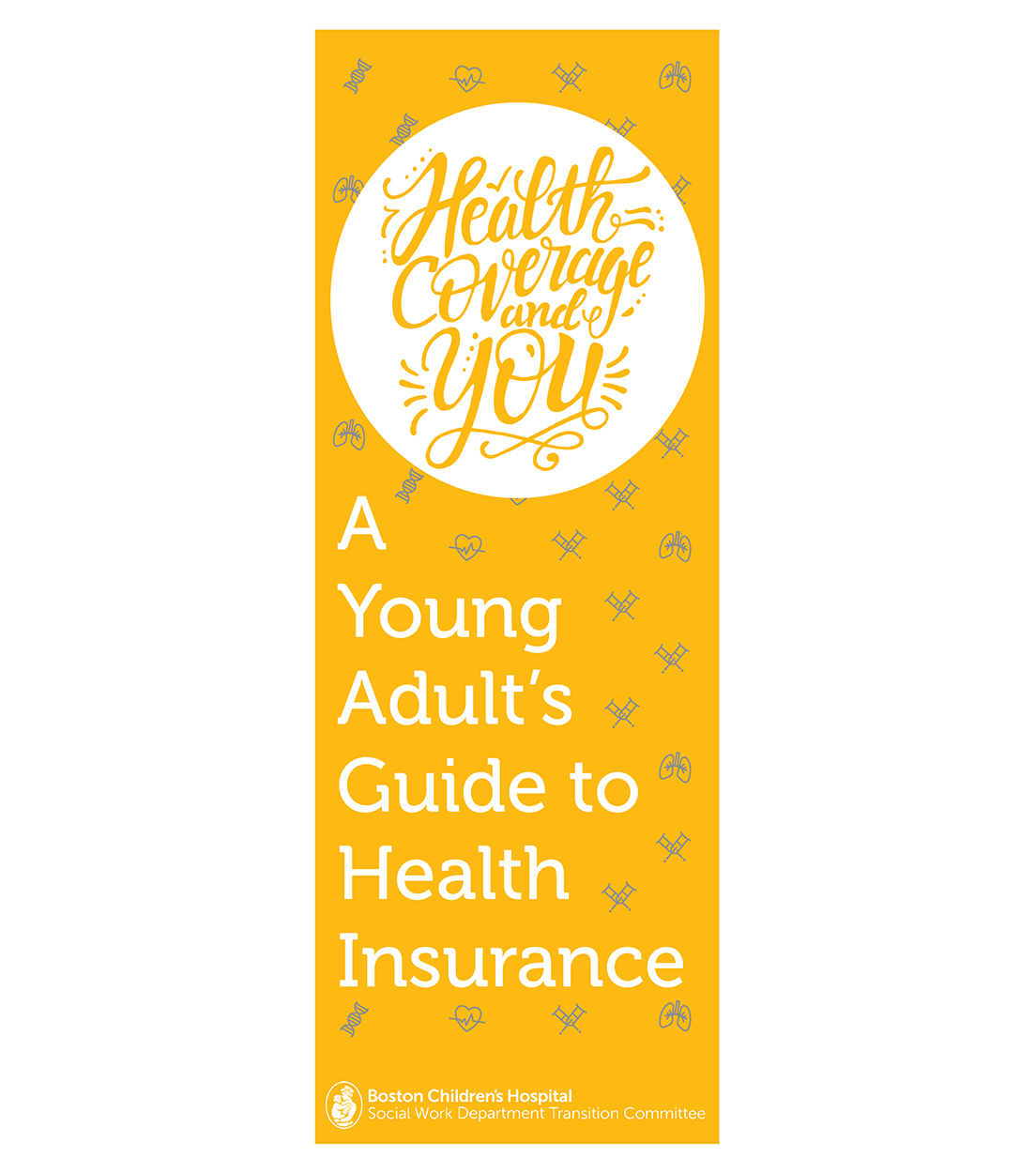
A Young Adult's Guide to Health Insurance
Health Coverage and You: A Young Adult’s Guide to Health Insurance has information about things to consider related to starting out as an adult and navigating the insurance maze. It includes a helpful worksheet to help consider personal factors which might impact the choices.
